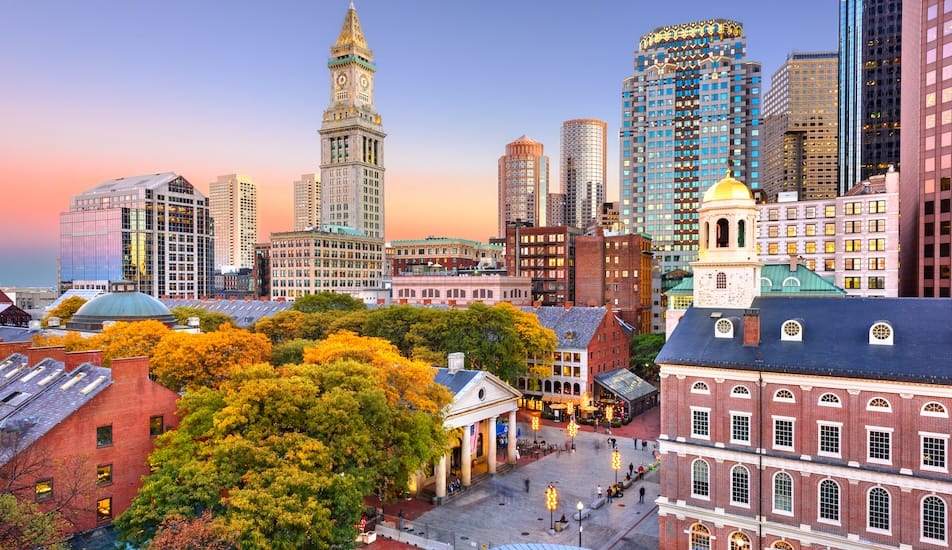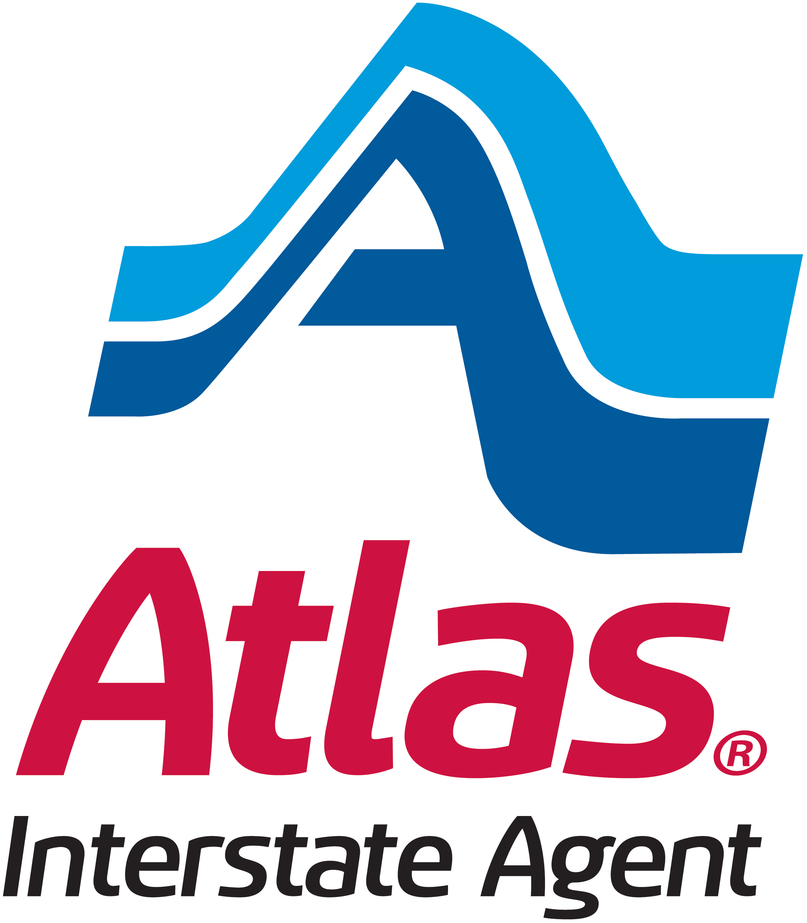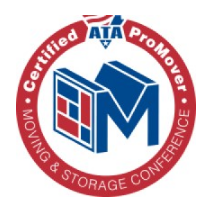Moving Guide to Boston: Essential Tips for a Successful Relocation

Boston stands as a beacon of opportunity, where colonial charm meets cutting-edge innovation. This historic city draws thousands of new residents annually with its world-class universities, thriving job market, and rich cultural heritage.
Moving to this vibrant city demands careful consideration, from investigating the housing choices with a typical one-bedroom apartment price of $2,330 to becoming familiar with the local transit network.
Success in your Boston relocation journey hinges on understanding the city’s distinctive character and preparing accordingly. Each neighborhood offers its own combination of features, from the academic setting of Cambridge to the historic streets of Beacon Hill.
The city’s efficient public transit system, seasonal considerations, and specific moving regulations shape the experience of settling into your new home.
Our helpful guide covers key details of your move, from securing essential parking permits to selecting dependable moving services, ensuring you’re prepared to handle both nearby and distant relocations with confidence.
Pre-Move Planning And Timeline
Planning your move to Boston requires careful consideration to ensure a successful transition. A well-planned schedule and diligent preparation will help you manage the distinct difficulties of moving to this historic city. For additional insights and best practices, consult a comprehensive Massachusetts relocation guide to ensure you know what to expect.
Best Times to Move to Boston
September 1st marks Boston’s biggest moving day, locally known as “Allston Christmas,” when many leases begin and end. While this period offers abundant housing options, it brings intense competition and higher moving costs.
For better rates and greater availability of moving services, consider scheduling your move between October and March. Winter moves offer cost savings but require additional preparation due to Boston’s challenging weather conditions.
Creating Your Moving Budget
Developing a thorough budget is essential for a successful Boston move. To live comfortably in Boston, plan for an annual income of at least $90,000.
Essential expenses to include in your budget:
- Moving company services and insurance
- First month’s rent, last month’s rent, and security deposit
- Transportation costs (MBTA passes: $90-$426 monthly)
- Utility setup fees and initial payments
- Emergency funds for unexpected expenses
Essential Documents and Records
Organize these important documents well in advance of your move:
Important Personal Documents:
- Government-issued identification
- Proof of income and employment
- Rental or purchase agreements
- Medical and dental records
Additional Required Records:
- School transcripts and vaccination records
- Vehicle registration and insurance (if applicable)
- Tax documents and banking information
Boston’s Weather Considerations
Boston experiences distinct seasonal changes, with hot summers and cold winters. Significant snowfall occurs from December through March. Winter relocations may face weather-related delays but offer reduced rates, while summer moves provide more predictable conditions.
Packing Tips for Boston Weather:
- Prepare for temperatures ranging from below freezing to over 90°F
- Include winter gear in your essential items box
- Consider weather-appropriate packing materials
- Request specialized protection from moving services for both winter moisture and summer humidity
Professional moving services can ensure your belongings arrive in perfect condition regardless of seasonal challenges. Their expertise in handling Boston’s variable climate helps protect your items during transit, from delicate electronics to temperature-sensitive belongings.
Finding Your Ideal Boston Neighborhood
Selecting the right neighborhood in Boston shapes your daily life and long-term happiness. Each district offers distinct advantages, from historic charm to modern amenities, making thoughtful research essential for your decision.
Popular Areas and Their Characteristics
Boston’s neighborhoods showcase remarkable diversity in character and lifestyle options:
- Back Bay: Prestigious area featuring Victorian brownstones and upscale shopping along Newbury Street
- South End: Hub for young professionals and families, known for trendy restaurants and elegant row houses
- Beacon Hill: Historic district with gas-lit streets, cobblestone paths, and classic architecture
- Allston-Brighton: Budget-friendly area popular among students and young professionals
- Cambridge: Academic atmosphere near Harvard and MIT, offering intellectual energy and cultural diversity
- Jamaica Plain: Family-oriented community with green spaces and diverse dining options
- Somerville: Creative district with a thriving arts scene and emerging food culture
Commute Times and Transportation Access
Boston’s public transportation network varies in convenience and accessibility across neighborhoods. The MBTA subway system (the T) serves as the primary transit option, with monthly passes ranging from $90 to $426.
Prime locations for commuters include:
- Back Bay: Multiple subway lines and commuter rail access
- South End: Excellent bus and subway connectivity
- Downtown: Central hub for all major transit lines
- Cambridge: Red Line access with dedicated bike lanes
Safety Statistics and Crime Rates
Boston’s neighborhoods demonstrate varying safety profiles, with several areas maintaining consistently strong safety records. Beacon Hill, Back Bay, and many parts of Cambridge rank among the safest districts, though housing costs reflect this advantage.
Key safety considerations include:
- Street lighting quality
- Pedestrian activity levels
- Active neighborhood watch programs
- Proximity to police stations
- Community engagement initiatives
Local Amenities and Services
Essential neighborhood features to evaluate:
Healthcare Access
- Distance to major hospitals
- Local medical clinics
- Emergency care facilities
Educational Options
- Public and private school ratings
- Distance to universities
- Library access
Lifestyle Amenities
- Parks and recreation spaces
- Grocery stores and markets
- Restaurants and cafes
- Fitness centers
- Cultural venues
Each neighborhood provides a unique mix of these amenities. Back Bay offers an extensive selection of services with premium pricing, while Allston-Brighton provides useful amenities at more reasonable costs. Visit potential neighborhoods during different times of day to experience the community atmosphere firsthand and ensure it matches your lifestyle preferences.
Boston’s Cost Of Living Breakdown
Understanding Boston’s cost of living helps you plan a successful move and maintain long-term financial stability. As one of America’s most expensive cities, Boston demands thoughtful budgeting and careful financial preparation.
Housing Expenses and Market Trends
Housing represents the largest expense in Boston’s cost equation. A one-bedroom apartment typically costs $2,330 per month, with significant variations across neighborhoods. Premium locations like Back Bay and Beacon Hill command premium prices, while outer neighborhoods provide more budget-friendly options.
Essential housing-related costs include:
- Monthly utilities (with notably high winter heating expenses)
- Security deposit (one month’s rent)
- Broker fees (typically one month’s rent)
- Renter’s insurance
- Building amenity fees (where applicable)
Daily Living Costs
Boston’s everyday expenses require strategic planning. Grocery costs typically run 10-15% above the national average, while dining presents varied options across price points:
- Quick-service meals: $15-25 per person
- Mid-range restaurants: $30-50 per person
- Fine dining experiences: $100+ per person
The city offers rich cultural experiences with smart savings opportunities. Many historical sites and museums feature free admission days or discounted evening hours, allowing budget-conscious residents to enjoy Boston’s cultural heritage.
Transportation Expenses
Boston offers multiple transportation options, each with distinct cost considerations. The MBTA public transit system provides economical travel with tiered pricing:
- Basic subway access: $90 monthly
- Combined subway/bus pass: $90 monthly
- Commuter rail zones: $200-426 monthly
For car owners, essential expenses include:
- Monthly parking fees ($200-400 for dedicated spots)
- Higher-than-average insurance premiums
- Regular fuel costs
- Seasonal maintenance and winter preparation
Income Requirements By Area
Financial comfort in Boston typically requires an annual income of $90,000 for single individuals renting one-bedroom apartments. This baseline helps maintain the recommended 30% housing cost ratio while covering essential expenses.
Neighborhood-specific income recommendations:
Premium Districts:
- Back Bay/Beacon Hill: $100,000+
- Seaport District: $100,000+
Mid-Range Areas:
- South End: $85,000-100,000
- Cambridge: $85,000-100,000
- Somerville: $85,000-100,000
More Affordable Neighborhoods:
- Allston-Brighton: $70,000-85,000
- Dorchester: $70,000-85,000
- Roxbury: $70,000-85,000
Consider your lifestyle preferences, savings goals, and neighborhood amenities when calculating income requirements. Some higher-priced areas offset costs through reduced transportation expenses or enhanced access to free community amenities.
Local Moving in Boston
Moving within Boston presents unique challenges due to the city’s historic layout, narrow streets, and strict regulations. Whether you’re relocating to a charming brownstone or a modern high-rise, understanding Boston’s specific requirements will ensure a smooth transition to your new home.
Parking Permits and Regulations
Securing proper parking permits for your moving vehicles is essential in Boston. You must obtain a Moving Truck Permit from the city at least two weeks before your planned moving date to reserve designated parking spaces and ensure compliance with local regulations.
Key permit requirements:
- Permit costs range from $69-100 per day
- “No Parking” signs must be posted 48 hours before your move
- Many neighborhoods enforce specific time restrictions for moving activities
- Operating without proper permits can result in substantial fines and delays
Building Requirements
Boston’s diverse architecture means each building maintains unique moving requirements and restrictions. Before finalizing your move date:
- Contact building management to review specific moving policies
- Reserve freight elevators for high-rise moves
- Obtain all required insurance certificates
- Verify loading dock availability and scheduling
- Review building-specific moving hour restrictions
Street Access Guidelines
Discovering Boston’s historic streets involves thoughtful preparation and familiarity with the area. The city’s infrastructure presents unique challenges with low-hanging trees, narrow passages, and weight restrictions. Professional moving companies familiar with Boston’s layout, like Nelson Westerberg, excel at:
- Planning optimal routes around low bridges and weight-restricted roads
- Driving through one-way streets and tight corners with care
- Scheduling moves to avoid peak traffic periods
- Coordinating around street cleaning and snow removal schedules
Local Moving Company Selection
Selecting the appropriate moving company is important for a successful Boston relocation. Look for movers who demonstrate:
- Comprehensive understanding of Boston’s neighborhoods and regulations
- Current licensing and appropriate insurance coverage
- Strong customer reviews and local testimonials
- Transparent pricing and detailed written estimates
- Proven experience with your specific type of move
At Nelson Westerberg, we utilize our extensive experience of over 110 years in the home moving industry to guarantee seamless local Boston relocations.
Our professional teams combine specialized equipment with extensive local knowledge to handle every aspect of your relocation. From historic brownstone moves to modern high-rise transitions, we manage all permitting and logistics, allowing you to focus on settling into your new Boston home.
Interstate Moving to Boston
Moving to Boston from another state marks an exciting new chapter that requires thoughtful planning and preparation. Whether you’re relocating from nearby New England or across the country, understanding the essential elements of an interstate move will help ensure a smooth transition to your new Massachusetts home.
Cross-State Requirements
Interstate moves involve specific requirements that distinguish them from local relocations. Here’s what you need to know when moving to Boston:
- Confirm your moving company’s interstate licensing and current USDOT registration Discover diverse insurance coverage choices for transporting goods across state lines.
- Learn Massachusetts vehicle registration deadlines and requirements
- Prepare for New England weather conditions, particularly winter challenges
- Collect essential documentation for utilities, schools, and state residency verification
Transportation Options
Your interstate move deserves a transportation solution that fits your unique needs. Nelson Westerberg offers several reliable options to accommodate various preferences:
- Dedicated moving trucks for exclusive, direct transport
- Cost-effective consolidated shipping alternatives
- Professional vehicle transportation services
- Flexible storage solutions during your transition
- Swift express delivery for time-sensitive relocations
Cost Considerations
Understanding the financial aspects of your interstate move helps create an accurate budget. Key factors affecting your moving costs include:
- Total distance between your current home and Boston
- Overall weight and volume of your household items
- Seasonal rate variations (peak rates apply May through September)
- Optional services such as professional packing and storage Robust insurance coverage options
Boston’s higher cost of living requires careful financial planning, with a recommended annual income of $90,000 for comfortable living. Smart budgeting of your moving expenses creates a solid foundation for your new life in the city.
Timeline Planning
A well-structured timeline ensures a smooth transition to your new Boston home. Here’s a thorough planning guide:
8-12 weeks before:
- Compare and select a qualified interstate movers
- Start systematic decluttering and organization
- Request detailed quotes and review insurance options
6-8 weeks before:
- Lock in your preferred moving date
- Begin packing items used less frequently
- Research and secure necessary storage solutions
4-6 weeks before:
- Finalize all moving arrangements with your chosen company
- Complete address changes and utility transfers
- Book personal travel accommodations to Boston
2-4 weeks before:
- Wrap up remaining packing tasks
- Coordinate transportation for valuable or unique items
- Review building requirements and arrival logistics
Nelson Westerberg brings over 100 years of experience to your Boston relocation. Our dedicated teams expertly manage every aspect of interstate moves, from initial planning through final delivery.
We combine extensive knowledge of Boston’s unique moving requirements with professional interstate moving expertise, ensuring your belongings arrive securely while keeping you informed throughout the process.
Long-Distance Moving Preparation
Planning a long-distance move to Boston requires thorough preparation and close consideration of the details. Our helpful information will assist you in this complex undertaking and facilitate a smooth transition to your new home in the Hub.
Storage Solutions
When coordinating a long-distance move, flexible storage options become essential for managing timing gaps and space constraints. Professional storage solutions provide:
- Climate-controlled facilities protecting belongings from Boston’s variable weather conditions
- Flexible short and long-term storage accommodating various closing dates
- Advanced security systems with 24/7 monitoring and inventory management
- Convenient access to stored items whenever needed
- Temporary storage solutions during home staging or renovation projects
Moving Company Selection
Choosing the right moving company is crucial for a successful long-distance relocation. Nelson Westerberg delivers excellence through:
- Over 110 years of experience with cross-country moves to Boston
- Prestigious FIDI/FAIM quality certifications
- Trusted partnerships with Fortune 100 companies
- Advanced GPS tracking systems for real-time shipment updates
- Full-service solutions from professional packing to complete unpacking
Insurance Requirements
Protect your belongings during a long-distance move with appropriate insurance coverage:
Our protection plan offers extensive coverage for your belongings.
- Released value protection providing basic coverage options
- Specialized coverage plans for high-value possessions
- Streamlined documentation processes for efficient claims handling
- Custom insurance solutions for unique or valuable items
Cost-Saving Strategies
Optimize your moving budget while maintaining premium service quality:
- Schedule your move during winter months to benefit from off-peak rates
- Reduce moving costs by decluttering before your relocation
- Take advantage of consolidated shipping options with flexible dates
- Secure better rates through early booking and advance planning
- Minimize potential damage with professional packing services
At Nelson Westerberg, we excel in coordinating complex long-distance moves with precision and care. Our experienced team provides dedicated support throughout your relocation journey, ensuring your possessions arrive safely at your new Boston residence.
Let us manage the details of your long-distance move while you prepare for an exciting new chapter in one of America’s most historic cities.
Setting Up Your New Home
Establishing your new life in Boston involves transforming your space into a welcoming home. A successful transition requires careful planning and attention to essential services and registrations.
Utility Services
Setting up utilities promptly ensures day-one comfort in your new Boston residence. Here are the primary utilities you’ll need to arrange:
- Electricity: Eversource
- Natural Gas: National Grid
- Water Services: Boston Water and Sewer Commission
- Internet: Comcast, RCN, or Verizon
- Waste Management: City of Boston Services
Pro Tip: Schedule utility connections at least two weeks before your move date. Most providers offer convenient online registration and automatic payment options for seamless service management.
Registration Requirements
New Boston residents must complete several essential registrations within their first few months:
- Massachusetts driver’s license or state ID (within 30 days)
- Vehicle registration and parking permits
- Voter registration
- USPS change of address
- Local census response
Healthcare Providers
Boston’s prestigious medical community offers world-class healthcare options. Consider these essential steps when setting up your medical care:
- Research major healthcare networks:
- Partners HealthCare
- Beth Israel Lahey Health
- Locate and register with:
- Primary care physicians accepting new patients
- Nearby urgent care facilities
- Necessary specialists
- Local pharmacy
Consider your neighborhood’s proximity to major medical centers, as Boston’s traffic patterns can significantly impact healthcare access.
Educational Institutions
Boston’s diverse educational offerings provide exceptional opportunities for learners of all ages:
Public Schools:
- Contact Boston Public Schools (BPS) assignment office early
- Understand enrollment procedures and deadlines
- Prepare required documentation
Private Schools:
- Research admission cycles
- Review entrance requirements
- Plan for application deadlines
Higher Education:
- Explore Boston’s numerous colleges and universities
- Investigate continuing education programs
- Consider specialized academic programs and charter schools
Important: Gather essential documents, including immunization records and academic transcripts, to ensure smooth enrollment.
Nelson Westerberg’s professional moving services can align your relocation timeline with crucial registration deadlines and school schedules. Our local expertise helps you select neighborhoods that match your educational and healthcare priorities, ensuring a seamless transition to your new Boston home.
Boston Living Essentials
Living in Boston opens the door to exciting opportunities and unique experiences. Understanding a few key aspects of city life will help you settle in comfortably and make the most of your new home, from efficient transportation options to seasonal preparations.
Public Transportation System
The MBTA, often referred to as “the T,” provides Boston’s extensive public transportation network. This cost-effective transportation solution offers monthly passes ranging from $90 to $426, making it an economical alternative to driving.
Key components of the MBTA include:
- Four color-coded subway lines (Red, Blue, Green, and Orange) connecting major neighborhoods Expansive bus routes serving areas beyond subway access
- Convenient commuter rail service to suburban destinations
- Scenic water ferry services across Boston Harbor
Many residents prefer the MBTA over driving, particularly during rush hour or special events, thanks to its reliability and extensive coverage.
Parking Solutions
Parking in Boston requires thoughtful preparation and understanding of local regulations. Most residential areas mandate resident parking permits, available through the city’s parking clerk office.
Your parking options include:
- Private garage rentals for guaranteed spaces
- Monthly passes in commercial parking facilities
- Street parking with appropriate permits
- Car-sharing services as a flexible alternative
Stay informed about street cleaning schedules and snow emergency routes to avoid unexpected tickets or towing expenses.
Winter Preparation Tips
Boston winters call for thorough preparation and practical knowledge. Essential winter readiness steps include:
- Installing effective window insulation to maintain warmth
- Purchasing high-quality winter gear, especially waterproof boots
- Understanding your snow removal responsibilities
- Maintaining emergency supplies
- Following space saver protocols during snow emergencies
A well-prepared approach to winter weather ensures both comfort and safety throughout the cold season.
Local Resources And Services
Boston provides robust resources to help residents thrive in their daily lives:
- 311 App – Boston’s official platform for non-emergency city services
- BOS:311 – Round-the-clock constituent service center
- Neighborhood Service Centers – Convenient local assistance hubs
- Boston Public Library system – Free educational resources and programs
- Community Centers – Diverse recreational and learning opportunities
Nelson Westerberg’s moving specialists can guide you toward neighborhood-specific resources during your relocation, easing your transition into Boston life.
The city’s official website, Boston.gov, serves as your central hub for municipal services, community updates, and important announcements. Mastering these Boston living essentials creates a strong foundation for a fulfilling life in your new city.
Frequently Asked Questions
- How much money should I save before moving to Boston?
Plan to save at least three months’ worth of living expenses ($15,000-$20,000) for a single person before moving to Boston. This budget covers essential upfront costs:
- First month’s rent
- Security deposit
- Last month’s rent (standard requirement in Boston)
- Moving expenses
- Emergency fund
With one-bedroom apartments averaging $2,330 monthly and a recommended annual income of $90,000 for comfortable living, your savings should reflect Boston’s premium cost of living.
- Which Boston neighborhoods are best for families?
Several Boston neighborhoods offer excellent environments for families:
- Jamaica Plain: Known for diverse communities and green spaces
- West Roxbury: Features quiet streets and strong public schools
- Roslindale: Offers a mix of urban amenities and a suburban ambiance
- Back Bay: Provides access to top schools and cultural attractions
- Beacon Hill: Historic charm with proximity to excellent education options
Each neighborhood balances factors like school quality, community atmosphere, and local amenities to suit different family needs.
- Do I need a car to live in Boston?
Boston’s efficient public transportation system (MBTA) makes car ownership optional for most residents. The expansive network includes:
- Subway lines (The T)
- Extensive bus routes
- Commuter rail services
Monthly MBTA passes cost between $90 and $426, offering significant savings compared to car ownership expenses. Given Boston’s limited and costly parking options, many residents find public transit both convenient and economical.
- How do I handle parking during my move?
Secure a smooth moving day in Boston by following these essential steps:
- Request a temporary parking permit at least two weeks before moving
- Contact Boston’s Transportation Department for street space reservation
- Verify neighborhood-specific moving truck restrictions
- Check time limitations for parking moving vehicles
Nelson Westerberg can assist with permit acquisition and parking logistics coordination to ensure a hassle-free move.
- What’s the best time of year to move to Boston?
The ideal moving period falls between October and March during the off-peak season. Key considerations include:
- Avoid September 1st (“Moving Day” or “Allston Christmas”)
- Consider winter moves for better rates despite weather challenges
- Book mid-month or mid-week for improved availability
- Look for off-season discounts from moving companies
Planning around these timeframes can result in more flexible scheduling options and potential cost savings.
Conclusion
Moving to Boston opens the door to exceptional opportunities while presenting unique challenges worth embracing. The city offers an exceptional quality of life, renowned educational institutions, and a vibrant cultural heritage that balance considerations like the higher cost of living and competitive housing market.
Your success in Boston starts with strategic preparation. Here are key factors to consider:
- Housing costs and neighborhood selection
- Transportation options and commuting routes
- Financial planning for city living
- Job market opportunities
- Cultural adaptation and community participation
A comfortable lifestyle in Boston typically requires an annual income of $90,000 or more. Fortunately, the city’s diverse job market and strong economic growth provide numerous paths to achieve your financial goals.
Professional relocation services prove invaluable when addressing Boston’s unique demands:
- Historic narrow streets and complex layouts
- Strict parking regulations
- Seasonal weather considerations
- Building access requirements
- Local moving permits and restrictions
Boston rewards its residents with unmatched advantages:
- World-class healthcare facilities Thriving, varied neighborhoods
- Rich historical attractions
- Outstanding educational opportunities
- Thriving arts and culture scene Thriving professional networks
With thoughtful planning, clear expectations, and professional support, you’ll be well-positioned to join the community of proud Bostonians. The city’s harmonious mix of historic charm and modern progress fosters an environment where personal and professional growth flourish naturally.
Related Articles
Where to Move from Texas: Top 10 States for Ex-Texans in 2025

Where to Move from Texas: Top 10 States for Ex-Texans in 2025 Record numbers of Texans are exploring life beyond state lines, driven by soaring housing costs, evolving career landscapes, and the search for new lifestyle opportunities. The decision to leave Texas stirs intense emotions – after all, the Lone Star State‘s unique culture and […]
Read MoreHow to Move a House from One Location to Another: Planning to Completion

Relocating an entire house might seem like something out of a movie, but this remarkable feat of engineering happens more often than you’d think. From preserving historic mansions to saving beloved family homes from coastal erosion, house moving represents the intersection of cutting-edge engineering and practical problem-solving. With project costs typically ranging from $18,000 to […]
Read More




